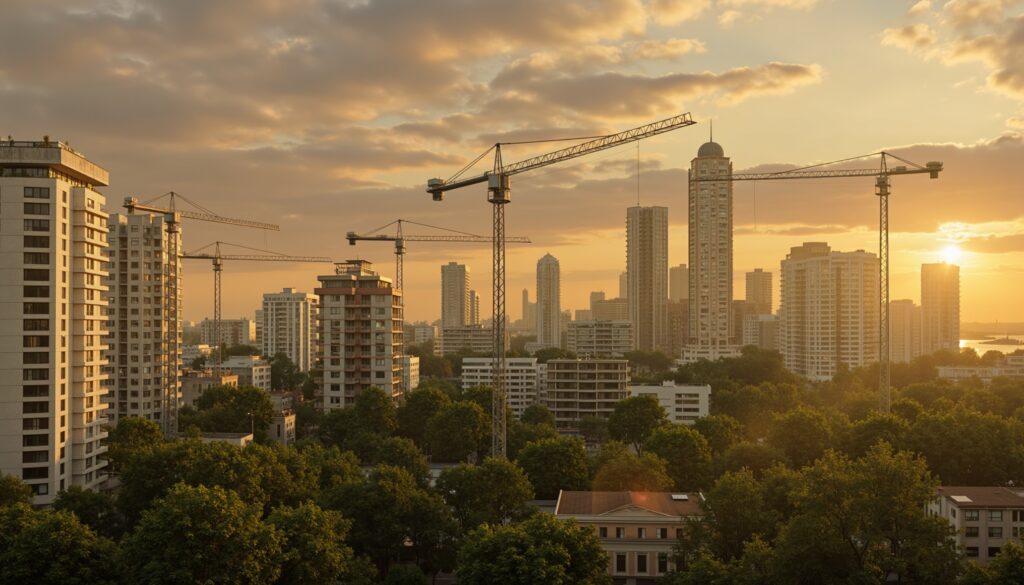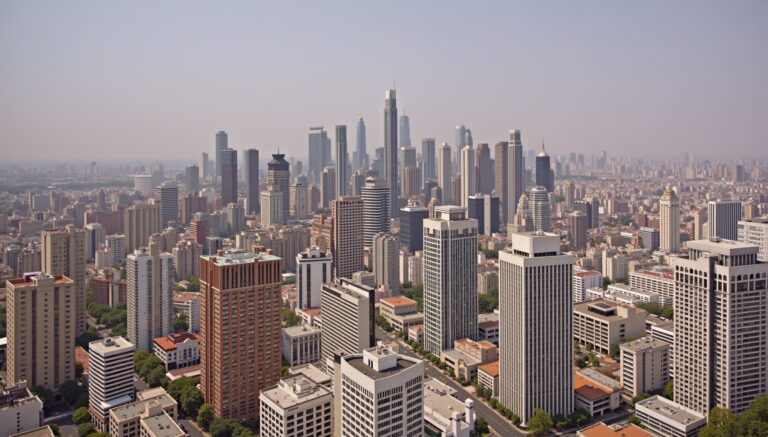Property development is a crucial aspect of urban growth and real estate investment.
However, navigating the landscape of property development permits can be complex and daunting.
These permits are essential legal documents required before commencing any construction or alteration on a property.
Understanding the various types of property development permits, the application process, and common challenges can significantly impact the success of your project.
This comprehensive guide will equip you with the knowledge needed to effectively manage the permit process and explore best practices to ensure a smooth approval journey.

Key Takeaways
- Property development permits are essential for legal construction and development projects.
- There are various types of permits, each with its unique requirements and processes.
- The permit application process involves several key steps that developers must follow meticulously.
- Common challenges include navigating bureaucracy and addressing community concerns regarding development.
- Staying informed about future trends can enhance your strategy in obtaining property development permits.
Understanding Property Development Permits: An Overview
When venturing into the world of real estate in Costa Rica, one vital aspect that prospective developers and investors need to grasp is the intricacies of property development permits.
These permits are essential for ensuring that any construction or modification of a property adheres to local regulations and zoning laws.
Understanding the process behind obtaining property development permits can streamline your building endeavors and avert potential legal issues down the road.
In Costa Rica, the process often includes submitting detailed plans, impact assessments, and engaging with local authorities.
It’s paramount to be aware that each municipality may have different requirements, so thorough research and, when necessary, consultation with local experts can be invaluable.
By familiarizing yourself with property development permits, you not only empower your own project but also contribute positively to sustainable development in the stunning landscapes of Costa Rica, helping maintain its ecological integrity.
Types of Property Development Permits and Their Requirements
When embarking on a property development project in Costa Rica, understanding the various types of property development permits is crucial to ensuring a smooth and lawful operation.
Property development permits can generally be categorized into several types, each with its specific requirements and processes.
Firstly, there’s the construction permit, which is essential for any new building or renovation project.
To obtain this permit, developers must submit detailed plans to the local municipality, proving compliance with zoning laws and building codes.
Additionally, an environmental impact assessment may be required, particularly for developments in ecologically sensitive areas.
Secondly, zoning permits are necessary to confirm that the intended use of the property aligns with local zoning regulations.
This often involves public hearings where community feedback can influence the outcome.
Lastly, occupancy permits are crucial for any completed structure, ensuring that it meets safety standards before inhabitants can legally reside there.
By understanding these types of property development permits and their requirements, developers can navigate the regulatory landscape of Costa Rica more effectively, ultimately leading to successful project completion.
‘Success is where preparation and opportunity meet.’ – Bobby Unser

The Permit Application Process: Step-by-Step Guide
When embarking on a new property development project, understanding the permit application process is crucial for success.
Property development permits are essential legal documents that allow developers to pursue their construction plans in accordance with local regulations.
The first step in the process typically involves conducting a preliminary site analysis to determine zoning compliance and land-use restrictions.
Once you have a clear understanding of the guidelines, the next step is to assemble all necessary documentation, including site plans, architectural drawings, and any required environmental assessments.
After gathering the necessary paperwork, submit your application to the local planning department, ensuring to pay any associated fees.
It’s advisable to keep communication lines open with officials for any queries that might arise during the review period.
If your application gets approved, follow up by obtaining any additional permits that may be required for utilities or special construction requirements.
By meticulously navigating the permit application process, property developers can pave the way to a successful and compliant project.
Common Challenges in Obtaining Property Development Permits
When embarking on a property development venture in Costa Rica, one of the most significant hurdles investors face is navigating the process of obtaining property development permits.
The regulations surrounding these permits can be complex and often vary from municipality to municipality.
Common challenges include understanding local zoning laws, meeting environmental regulations, and securing the necessary documentation, which can be both time-consuming and confusing.
Additionally, developers must often deal with delays due to bureaucratic processes, which can stall projects and increase costs.
Engaging with local experts and real estate professionals can mitigate these challenges, ensuring that investors are adequately prepared and informed about the legal landscape regarding property development permits in Costa Rica.

Best Practices for Ensuring Permit Approval
When embarking on any property development project, securing the necessary property development permits is crucial to ensure that your project complies with local regulations and avoids costly delays.
Start by thoroughly researching the specific zoning laws and environmental assessments required in your area.
Engage with local government offices early in the planning stage to clarify requirements and streamline the application process.
Preparing comprehensive documentation, including detailed plans, site maps, and any required studies, will enhance your permit application.
Establishing a dialogue with community stakeholders can facilitate smoother approvals by addressing concerns before they escalate.
Additionally, consider hiring a knowledgeable local consultant who specializes in property development permits, as their insights into local policies can significantly improve your chances of success.
Following these best practices will not only help in obtaining permits quickly but also lay a solid foundation for the successful execution of your property development project.
Future Trends in Property Development Permits
As the Costa Rican real estate market continues to flourish, understanding future trends in property development permits is crucial for investors and developers alike.
The Costa Rican government is actively streamlining the process to make it more transparent and efficient, thereby encouraging foreign investments and local developments.
One significant trend is the emphasis on sustainable development, which aims to harmonize expansion with environmental preservation.
Developers are increasingly required to present eco-friendly building plans that comply with strict regulations.
Additionally, the introduction of digital platforms for submitting property development permits is transforming the approval process, reducing wait times and enhancing accessibility for applicants.
With urban areas experiencing population growth, municipalities are expected to adapt zoning laws to accommodate mixed-use developments, further shaping the landscape of Costa Rican real estate.
Investors should stay informed about these trends, as they not only impact project timelines but also influence market demand and property values in the long run.
Frequently Asked Questions
What are property development permits and why are they important?
Property development permits are legal authorizations required to initiate construction or alterations on a property.
They are important because they ensure that the development complies with local zoning laws, building codes, and community standards, protecting public health and safety.
What are the different types of property development permits?
The different types of property development permits include zoning permits, building permits, environmental permits, and special use permits.
Each type has its own requirements and is necessary for different aspects of property development.
What is the typical process for applying for property development permits?
The typical process for applying for property development permits includes determining the required permits, submitting an application with necessary documents, paying fees, attending public hearings if necessary, and waiting for the authority to review and issue the permit.
What are some common challenges faced when obtaining property development permits?
Common challenges include navigating complex regulations, facing opposition from the community, delays in the approval process, and potential changes in zoning laws that may affect the project.
What best practices can I follow to increase my chances of permit approval?
To increase your chances of permit approval, ensure thorough research on local laws, engage with community stakeholders early, prepare a complete and accurate application, and consider hiring professional consultants such as architects or land use attorneys.





